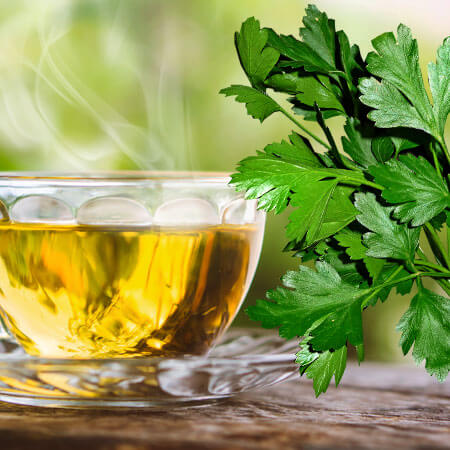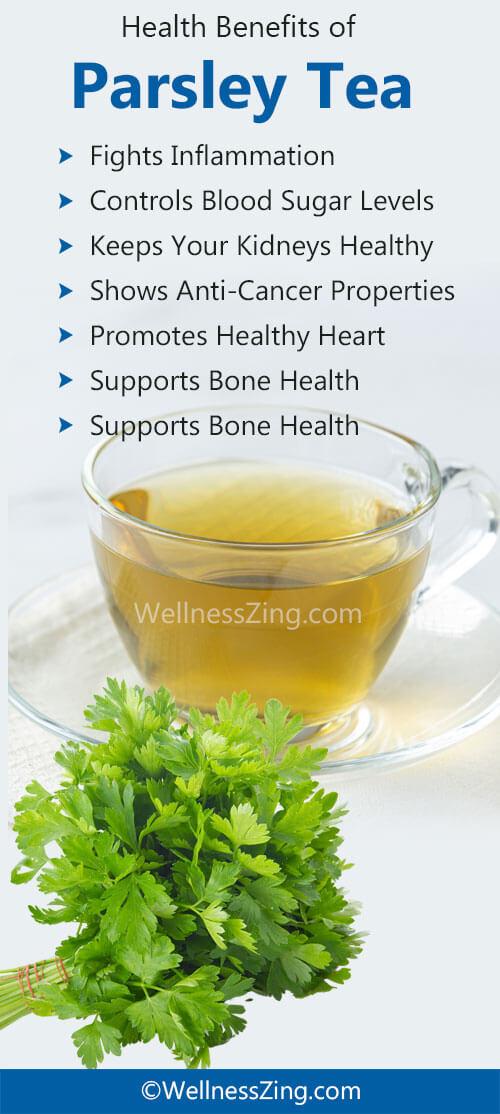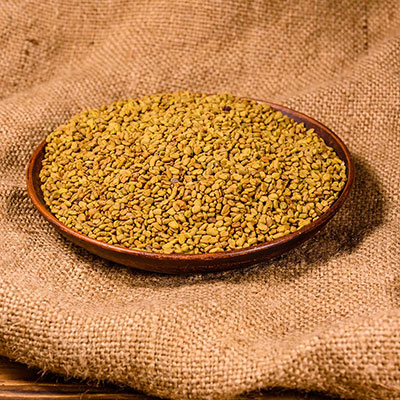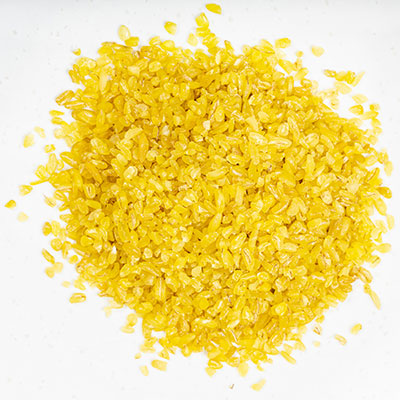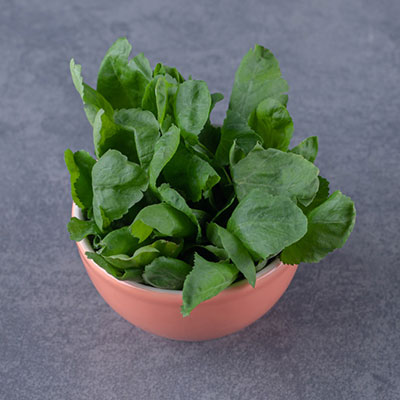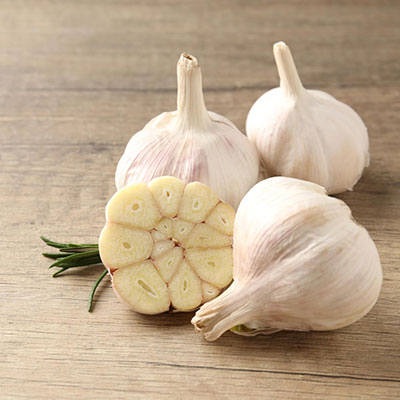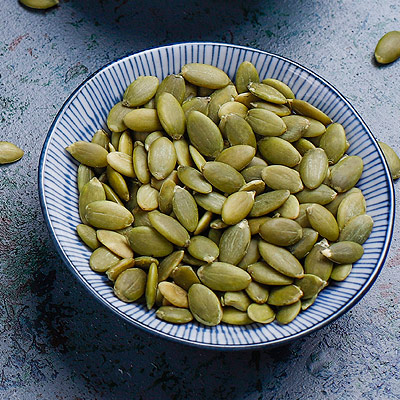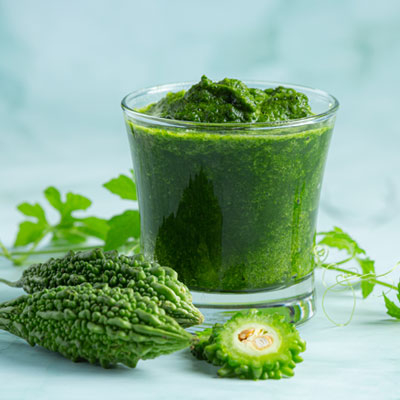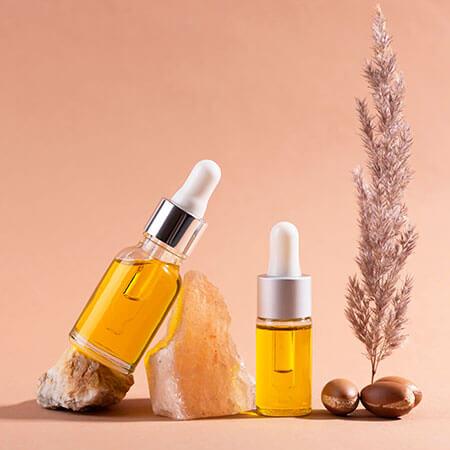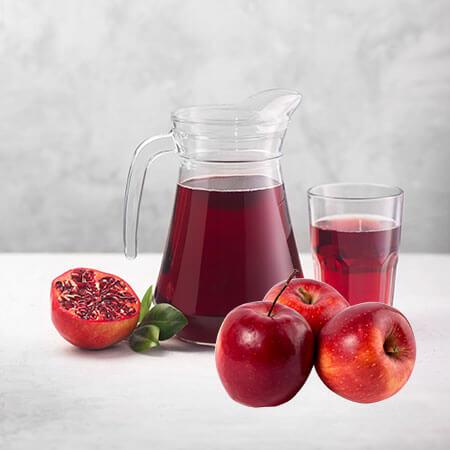Parsley is a flower-bearing herb that is mostly used in the preparation of Mediterranean dishes. It has got remarkable disease-fighting and anti-inflammatory abilities that can treat a wide range of illnesses such as high blood pressure, skin allergies, kidney ailments, bone disorders, and a few inflammatory diseases too. Parsley tea is one of the simplest ways to reap the goodness of this herb. Read on to know more about the nutritional profile, health advantages, and benefits of this healthy beverage.
About Parsley
Parsley (Petroselinum crispum) is a vibrant green-colored herb that has a mild, and pungent flavor. It has a crunchy texture. It is mostly used for its culinary and medical benefits. This herb is native to the Mediterranean region. Its cultivation began 2000 years back. In those days, the Greeks used to give Parsley leaves to honor sportspersons who won.
This priceless herb was also used for the decoration of the tombs. The Romans began using it to garnish their food. Parsley leaves are available in two variants like the one with flat-leaf and the one with curly leaf.
Nutritional Profile of Parsley
This herb is a powerful antioxidant. It provides a good amount of nutrients such as vitamins A, vitamin K, and vitamin C. Parley also helps manage blood glucose as well as support the functioning of vital organs in the body that includes the heart, and kidneys. It is beneficial in the clotting of the blood and maintaining the density of the bones.
Per 30 grams of freshly cut parsley offer the following nutrition to a person:
Calories: 11 calories
Carbohydrates: 2 grams
Fiber: 1 gram
Protein: 1 gram
Fat: below 1 gram
Vitamin K: 547% of the RDI
Vitamin A: 108% of the RDI
Vitamin C: 53% of the RDI
Potassium: 4% of the RDI
Folate: 11% of the RDI
Health Benefits of Drinking Parsley Tea
Parsley is a superfood that is loaded with antioxidants, and anti-inflammatory properties that can help you cure various types of ailments and infections in the body.
1. Fights inflammation
Parsley soothes and pacifies the body. It is helpful in the treatment of conditions that have been caused due to inflammation. This herb has high amounts of antioxidants in the form of vitamin C, flavonoids, carotenoids, vitamin A, and vitamin E. Drinking parsley tea reduces the chances of arthritis, atherosclerosis, cancer, Parkinson’s ailment, Alzheimer’s, and inflammation of the joints.
2. Helps Normalize Blood Sugar Levels
Parsley has a potent antioxidant, “myristicin” that assists in normalizing blood glucose levels in the body. It helps lessen inflammation and insulin resistance in the body.
3. Keeps Your Kidneys Healthy
Parsley is a potent diuretic that works by eliminating germs and toxins from the body. It regulates urine and prevents an increase in sodium and potassium in the body. Drinking parsley tea keeps the kidneys in a healthy state.
4. Shows Anti-Cancer Properties
Parsley has high amounts of flavonoids named apigenin that exhibits anti-cancer properties in a person. It has the ability to destroy cancer cells and reduce the tumor size in the body. Drinking parsley tea prevents cell growth and lowers oxidative stress in the body.
Parsely has two other important compounds as Luteolin and carnosol that shows anti-inflammation, anti-metastasis, and anti-proliferation properties. Thus, the strong specific protective anti-carcinogenic properties of the herb make it a potent treatment for various types of cancers like breast cancer, skin cancer, colon cancer, colorectal cancer and prostate cancer.
5. Promotes Healthy Heart
Low folate levels in the body are one of the reasons that constitute heart ailment. Parsley has good amounts of folic acid and flavonoids (antioxidants) that makes it a popular alternative treatment for hypertension. This important B vitamin maintains healthy levels of the amino acid named “homocysteine” which helps enhance heart health.
In this way, it also reduces the elevated levels of the amino acid that is linked to increasing the chances of cardiovascular ailments in the body. Folate is sensitive to heat that is best retained when you consume it in fresh form.
6. Supports Bone Health
Parsley is a rich source of vitamin K. This is a very important vitamin for bone health. Half a cup or 30 grams of parsley offer an impressive 547% of the recommended dietary intake of this vitamin. The higher consumption of vitamin K intake causes a 22% reduced chance of fractures. Vitamin K supports bone-building cells and activates specific proteins that enhance bone mineral density in the body.
Along with this vitamin, parsley also contains a few minerals, that prevent bone resorption and helps form new bone cells as osteocytes in the body. A handful of parsley sprigs is adequate to get the daily dosage of vitamin K. Drinking tea made from fresh parsley leaves to offer heightened protection against bone fractures. It also helps in synthesizing the protein to develop stronger bones.
7. Boosts Digestion
This soothing herb helps calm your digestive system and soothes the stomach. Parsley has a good amount of fiber that aids in digestion. It promotes the smooth movement of the food through the digestive tract. This fiber works as a “prebiotic fodder” for the growth of healthy bacteria in the intestine.
It contains specific digestion boosting compounds that aid in the expulsion of gas and reduce bloating in the body. Drinking 2 cups of parsley tea daily effectively treats gastrointestinal and digestive disorders in the body. It is especially when you have a feast or a big night out.
8. Boosts Immunity
Being a storehouse of several anti-inflammatory and antioxidants compounds, parsley strengthens the immune system in the body. It contains natural antioxidants in the form of flavonoids and flavonols, such as quercetin and kaempferol that powerfully fights against inflammation, cellular damage and oxidative stress in the body.
9. Improves Liver Health
Another major advantage of Parsley is that it aids in regulating cholesterol levels in the body. Parsley exhibits protective properties that aid in the cellular regeneration in the liver. It also effectively regulates liver enzymes in people. This makes it beneficial for people who suffer from diabetes.
10. Fights Bacteria
Parsley has been conventionally used for fighting germs in the body. It shows remarkable antimicrobial, antifungal, and antibacterial activity that hinder the development and spread of two key bacteria like Listeria monocytogenes, and Staphylococcus aureus and fungi like and Trichoderma viride and Penicillium ochrochloron.
11. Protects The Vision
Parsley is an abundant source of plant-based “vitamin A” that enhances vision in a person. In addition to it, the herb also contains two important carotenes, zeaxanthin, and lutein that protect your vision.
Appropriate intake of these antioxidants prevents oxidative damage and keeps the eyes healthy. People who consume parsley tea are less likely to develop cataracts, and macular degeneration. It ensures the optimum health of the eyes and prevents night blindness and dryness in the eyes.
12. Freshens Your breath
Parsley leaves have a refreshing smell that freshens up your breath. Chew a few parsley leaves after you consume onion or garlic. It will help mask their odor in the mouth.
13. Helps in UTI Condition
If you suffer from a urinary tract infection, then regularly drink a concoction of fresh parsley leaves can help you. This is because the herb has chemicals that can contract the muscles of your bladder, uterus, and intestine. It will help treat bladder infections, bladder stones, and kidney stones. This healthy drink is also effective in the treatment of indigestion, menstrual cramps, and UTIs.
14. Skin Benefits
Parsley leaves are very healthy for your skin too. They have ample amounts of a wide array of nutrients that includes manganese, zinc, copper, potassium, and calcium. The high concentration of potent antioxidants like Vitamin C, flavonoids, and Vitamin A is effective in preventing. In this way, it delays aging and helps reduce wrinkles and fine lines.
Vitamin C in parsley promotes the production of collagen in the skin that makes it firm and youthful. It gives structure and strength to the skin. These leaves exhibit remarkable antimicrobial properties that help fight bacteria that leads to acne on the skin. Parsley tea is also effective in balancing out excessive oiliness on the epidermal layer of the skin.
Parsley is also a potent anti-inflammatory in nature. It helps lower redness and irritation on the skin and makes it flawless and beautiful. Being an anti-oxidant rich food, drinking parsley tea brightens and even tones your skin. It helps reduce hyperpigmentation and eliminate uneven spots too.
1. Parsley Acne-Fighting Skin Toner
Prepare Parsley tea and add a few drops of lemon juice, three drops of rosemary extracts, and three drops of tea tree oil in it. Use it as a face toner.
2. Parsley Facial Cleanser
To prepare this cleanser, add a tsp of honey and a few drops of lemon juice to a cup of Parsley tea. Your face cleanser is ready. Use it daily to see visible lightening in spots and elimination of dead skin cells. The result is soft, and glowing skin naturally.
3. Face Pack For Skin Brightening
Regular use of this skin brightening tonic gives a dazzling radiance to your skin. It will make your skin healthy and clear naturally.
To prepare this face pack, take a bowl, and add a tbsp of yogurt. Now add some fresh parsley leaves and a tbsp of oatmeal to it. Make a fine paste. Add a few drops of tea tree oil. Mix well and apply it evenly on the face.
How To Prepare Parsley Tea?
Parsley tea is one of the simplest and healthiest ways to reap the benefits of the herb. It starts with choosing the best quality leaves. Parsley is available in supermarkets throughout the year. Find the ones that look fresh and have firm stems. Do not buy the ones that have faded or yellow leaves, with spots, and molds. Prefer organically sourced parsley as they are higher in terms of nutritional composition than the regular ones.
Ingredients Needed –
- 250 ml of water
- One-fourth cup of fresh parsley leaves
Process of Preparation –
- Take a tea kettle and boil the water.
- Add the fresh and properly rinsed parsley into the boiled water.
- Now steep the leaves for around ten minutes.
- Strain the leaves.
- Pour the contents into a glass. Your healthy Parsley tea is ready. Enjoy it hot.
It is completely safe to drink one to two cups of parsley tea daily. As parsley tends to interact with specific medication, you should always check with the doctor before you consume it.
Other Ways To Add Parsley To Your Diet
In addition to parsley tea, you can even add a fresh or dried form of the leaves into your diet. It’s delicious and refreshing aroma improves the entire culinary experience. Parsley is a versatile and affordable flavoring option that pairs well with several recipes.
Add them to your soups, marinades, tomato/salsa/chimichurri sauces, pasta, pizza, homemade bread, lasagna, spaghetti, omelette, frittatas, pesto, hummus, stews, seafood recipes, smoothies, and potato salads, salad dressings to make them even delicious and healthier.
Most people like to add the fresh twigs of this herb at the end of the cooking. They simply garnish fresh/dried leaves on their dishes like salmon, potato salads, etc. It gives an additional crunch and a fresh taste to their dishes.
Dried flakes of this herb taste delicious when added to hot dishes like pasta and sauces, whereas fresh herbs go well with salads and salad dressings. In some places, the leaves are used in conjunction with other herbs in Italian cuisines. Being a natural breath freshener, you can also chew a few leaves of it while cooking dishes with it.
Side Effects Of Consuming Parsley Tea
Parsley is safe when consumed in moderate amounts. If you consume it more than permissible limits then it can cause allergies in a few cases. Here are a few adverse effects that you can experience when drinking parsley tea.
1. Interferes With Blood Pressure Medication
Though parsley has been used to regulate the fluctuations in sodium and potassium levels in the body. It is beneficial to normalize blood pressure in the body. However, when you overconsume then it can interact with your hypertension medications. If you find that your blood pressure is fluctuating, then you must discontinue its consumption. It is beneficial to talk to the doctor to treat this condition.
2. May Lead To Hypoglycemia
Parsley has myristicin that works by reducing blood sugar levels in the body. However, if you are currently taking blood sugar lowering medication, then be cautious while drinking parsley tea. It can even lead to dangerously low blood glucose levels or hypoglycemia in the body.
3. Can Cause Excessive Bleeding
Parsley can prevent blood clotting or delay blood clotting in the body. Due to this property, you should refrain from drinking it at the time of performing the surgery. To be on the safer side, it is recommended to stop parsley in any form for a minimum of 15 days before getting surgery.
4. Can Make Your Skin Sensitive
It can also be seen that topical application of parsley oil on the skin can cause the development of skin sensitivity when it is exposed to the sun. This can lead to the development of rashes and sunburns in the body. So, wait before you go out in the sun after you apply it to the skin.
5. Breastfeeding, and Pregnancy
Excess consumption of parsley can lead to complications in pregnant or nursing mothers. You may notice low production of milk in the body. Thus, you should avoid consuming parsley in both these conditions.
How To Store Parsley Leaves?
Proper storage of Parsley is very important if you want to use it for many days. Improper storage can make its leaves to become colorless and flavorless.
Here are the storage instructions:
- Remove any dirty/yellow/wilted leaves.
- Wash them thoroughly.
- Drain the excess amount of water by spreading them on a kitchen towel.
- Repeat the entire washing process to remove any impurities that are still present in the leaves.
- Cover the entire bunch in a damp napkin and keep it in a closed container inside the refrigerator.
Storing in this way will enhance the shelf-life of parsley leaves. By following the above steps, you can easily store fresh parsley leaves for up to 15 days and dried parsley up to one year provided that you keep it in a dark and cool place.
Conclusion
Parsley is a multi-purpose herb that is packed with potential nutrients. It has got impressive antioxidant, diuretic, abortifacient, antitumor, expectorant, and antimicrobial effects that help treat several ailments.
It has good amounts of flavonoids and vitamin K that play a vital role in the treatment of problems related to the eyes, bone, and heart. It also gives you healthy and spotless skin. With these wonderful benefits, you should incorporate Parsley tea into your daily diet regularly.
If you liked this post, then do share it with your friends on social media. Also, you can write to us with any of your queries, suggestions, and comments. We will be happy to address them soon.
